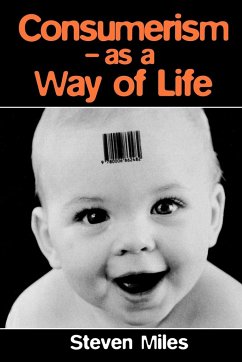
Consumerism
As a Way of Life

PAYBACK Punkte
25 °P sammeln!
This book provides an introduction to the historical and theoretical foundations of consumerism. It then moves on to examine the experience of consumption in the areas of space and place, technology, fashion, `popular' music and sport. Throughout, the author brings a critical perspective to bear upon the subject, thus providing a reliable and stimulating guide to a complex and many-sided field.














